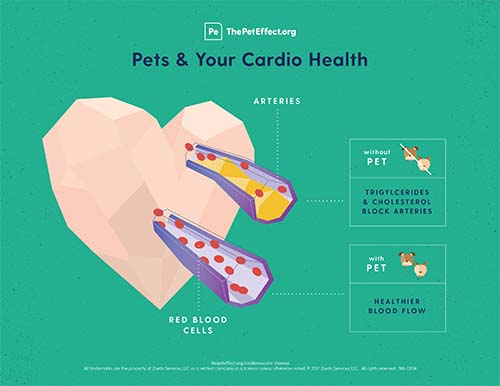Washington, D.C. (May 11, 2022) — The PAWS Act Coalition, a group of nonprofit and for-profit organizations committed to protecting survivors of domestic violence and their pets, is thrilled to share the recent announcement of the Fiscal Year (FY) 2022 U.S. Department of Justice (DOJ) Office of Victims of Crime (OVC) Emergency and Transitional Pet Shelter and Housing Assistance Grant Program. The $3 million appropriated for 2022 represents the fully-authorized amount under the Pet and Women Safety (PAWS) Act, a $500,000 increase in funding from 2021.
“The increase in funding for this grant program is a direct reflection of the need for more pet-friendly options for domestic violence survivors,” said Nina Leigh Krueger, CEO and President of Nestlé Purina PetCare. “Purina is proud to see and support continued momentum to ensure more survivors and their pets enter safe shelter and begin the healing process together.”
“The PAWS Act Coalition looks forward to working with the Department of Justice to raise awareness of the $3 million available to aid survivors of domestic violence and their pets,” said Steven Feldman, President of the Human Animal Bond Research Institute (HABRI). “We are proud to help spread to word about the opening of the 2022 grant applications, and to encourage eligible organizations across the country to apply.”
FY 2022 grants will provide funding for shelter and transitional housing and other assistance for survivors of domestic violence with pets, service animals, emotional support animals, or horses. Grants awarded may also be used for programs that provide support services designed to enable someone fleeing an abuser to locate and secure housing with their pet, safe accommodations for their pet, or related services such as transportation and other assistance.
The OVC can fund five grants of up to a maximum of $400,000 each and 15 grants of up to $100,000 each. The grants will be for a 36-month period of performance, to begin on October 1, 2022. Smaller awards are designed for shelters and other transitional housing services for survivors of domestic violence and their companion animals that may only be seeking funding for purchases such as kennels, pet-friendly building materials such as flooring and wall coverings, doggy doors, outdoor play yards, cages, crates, pet supplies, and other items that may be necessary to housing survivors of domestic violence and pets together.
“We are excited OVC is now offering both larger and smaller grants to meet the varied needs of shelters. This will enable survivors and their pets to gain access to critical resources that will ensure their safety and support their healing process,” said Nicole Forsyth, President and CEO of RedRover.
Organizations eligible to apply include states and territories; units of local government; Indian tribes; any other organizations that have documented history of effective work concerning domestic violence, dating violence, sexual assault, or stalking, including:
- Domestic violence and sexual assault survivor service providers;
- Domestic violence and sexual assault coalitions;
- Community-based and culturally specific organizations; and
- Any other nonprofit, nongovernmental organization
Additionally, any organization that works directly with pets, service animals, emotional support animals, or horses and collaborates with any organization referenced above is eligible to apply for funding. Such organizations include animal shelters and animal welfare organizations.
The U.S. Department of Justice, through the Office of Justice Programs, OVC, will accept applications for this grant program through June 27, 2022. The PAWS Act Coalition is working to share this funding opportunity as widely as possible so that organizations who are qualified are informed and can apply.
- OVC will conduct one pre-application webinar during which OVC staff will review the solicitation requirements and conduct a question and answer session with interested potential applicants. Participation is optional.
- Date: Thursday, May 26, 2022
- Time: 3:00pm – 4:00pm Eastern Time
- To register for the webinar, please visit: https://ovc.ojp.gov/funding/funding-webinars#ovc-fy-2022-emergency-and-transitional-pet-shelter-and-housing-a
- The Office of Justice Programs encourages applicants to review the “How to Apply” section in the OJP Grant Application Resource Guide and the JustGrants website for more information, resources, and training.
The $3 million appropriated for 2022 follows the success of the FY 2020 and FY 2021 Emergency Transitional Pet Shelter Housing and Assistance Grant Programs, which awarded approximately $2 million to six organizations in six states across the nation in 2020 and a total of $2.42 million to five organizations in 2021. Grants have enabled shelters to expand housing and supportive service resources for domestic violence survivors, provide assistance including rent, pet deposits, and pet supplies to those seeking transitional housing with their pet, and more.
“Pet Partners advocates around the country are voicing their passionate support for funding for the PAWS Act Grant Program and for more resources for domestic violence survivors and pets,” said Annie Peters, CEO of Pet Partners. “Thanks to their united voice, the fully authorized $3 million has been made available this year, which will help more survivors of domestic violence remain together with their pets at a time when they need each other the most.”
Organizations in the PAWS Act coalition include:
- Purina (Nestlé Purina PetCare)
- Human Animal Bond Research Institute (HABRI)
- Noah’s Animal House
- Pet Partners
- RedRover
- Urban Resource Institute (URI)
Two of these organizations, Noah’s Animal House and Urban Resource Institute, are part of the less than 20% of domestic violence shelters across the country that actively offer co-shelter services to keep both pets and their owners away from the dangers of domestic abuse. Together these two incredible organizations have saved over 2,500 pets from abusive conditions, so that no domestic violence survivor is forced to choose between staying in an abusive relationship and leaving their pet with their abuser.
“Since 2007, Noah’s Animal House has protected over 2,100 pets for more than 110,000 boarding nights, serving clients from over 33 states in the U.S, in addition to our home state of Nevada. Women drove thousands of miles from Florida, Oklahoma, Maine, Texas and others, driving past other women’s shelters in every state for one reason only, their pet had to be included in their escape plan,” said Staci Columbo Alonso, founder of Noah’s Animal House.
“The Urban Resource Institute’s People and Animals Living Safely (PALS) program fielded the PALS Report & Survey on Domestic Violence and Pets, which found that 50% will not leave a dangerous situation without their pets, and 72% did not know some shelters accommodate pets,” said Nathaniel M. Fields, Chief Executive Officer of Urban Resource Institute. “This data underscores and how much work we still need to do and the importance of critical federal funding for service providers around the country to safeguard people and their pets.”
About Purina
Nestlé Purina PetCare creates richer lives for pets and the people who love them. Founded in 1894, Purina has helped dogs and cats live longer, healthier lives by offering scientifically based nutritional innovations. Purina manufactures some of the world’s most trusted and popular pet care products, including Purina ONE, Pro Plan, Fancy Feast and Tidy Cats. Our more than 8,700 U.S. associates take pride in our trusted pet food, treat and litter brands that feed 51 million dogs and 65 million cats every year. More than 500 Purina scientists, veterinarians, and pet care experts ensure our commitment to unsurpassed quality and nutrition.
Purina promotes responsible pet care through our scientific research, our products and our support for pet-related organizations. Over the past five years, Purina has contributed more than $150 million towards organizations that bring, and keep, people and pets together, as well as those that help our communities and environment thrive.
Purina is part of Nestlé, a global leader in Nutrition, Health and Wellness. For more information, visit purina.com or subscribe here to get the latest Purina news.
About Pet Partners
Pet Partners is the national leader in demonstrating and promoting the health and wellness benefits of animal-assisted therapy, activities, and education. Since the organization’s inception in 1977, the science proving these benefits has become indisputable. With thousands of registered teams making millions of visits annually, Pet Partners serves as the nation’s most diverse and respected nonprofit registering handlers of multiple species as volunteer teams. Pet Partners teams visit with patients in recovery, people with intellectual disabilities, seniors living with Alzheimer’s, students, veterans with PTSD, people who have experienced crisis events, and those approaching end of life, with the goal of improving human health and well-being through the human-animal bond. With the release of its Standards of Practice for Animal-Assisted Interventions and international expansion, Pet Partners is globally recognized as the industry gold standard. For more information on Pet Partners, visit www.petpartners.org.
About Urban Resource Institute
Urban Resource Institute (URI) helps transform the lives of domestic violence survivors and homeless families, with a focus on communities of color and other vulnerable populations, to end cycles of violence, poverty, and trauma. As the largest provider of domestic violence shelter services in the US and a leading provider of homeless services, URI’s innovative programs impact more than 40,000 individuals annually through prevention, intervention, education, and direct services in both residential and non-residential settings, including the pioneering People and Animals Living Safely (PALS) program for domestic violence survivors and pets. With a trauma-informed approach to program development and service delivery, URI is uniquely equipped to provide solutions to the challenges affecting New York City’s most vulnerable populations while influencing service delivery in other parts of the U.S. and the world. For more information, please visit www.urinyc.org.
About Noah’s Animal House
Noah’s Animal House was the first stand-alone full service pet boarding facility in the country built on the grounds of and in partnership with The Shade Tree Shelter in 2007 to provide safety, shelter and support for the pets of the clients of the shelter. A second location serving up to 36 animals in Reno, Nevada opened February 2018 in partnership with the Domestic Violence Resource Center. In a national survey, 71 percent of women seeking safety in a domestic violence shelter reported pet abuse in their home and more than 25 percent delayed leaving because they did not have an escape plan that could include their pets. To learn more about Noah’s Animal House, visit http://www.noahsanimalhouse.org.
About RedRover
Since 1987, RedRover has focused on bringing animals out of crisis and strengthening the human-animal bond through emergency sheltering, disaster relief services, financial assistance, and education. Since 2007, RedRover has awarded 1,192 Safe Escape grants, totaling more than $894,000 and providing 51,424 safe nights for 1,644 pets. Since 2012, RedRover has given 167 grants to shelters in 46 states, totaling more than $2.2 million and equaling more than 387,200 safe nights for pets. Additionally, Safe Housing grants have created the first pet-friendly domestic violence shelter in 10 states! To learn how RedRover is creating a more compassionate world, visit RedRover.org.
About HABRI
HABRI is a not-for-profit organization that maintains the world’s largest online library of human-animal bond research and information; funds innovative research projects to scientifically document the health benefits of companion animals; and informs the public about human-animal bond research and the beneficial role of companion animals in society. For more information, please visit http://www.habri.org.
Contact
Logan Trautman
logan@inspireprgroup.com
614.532.5279
###





